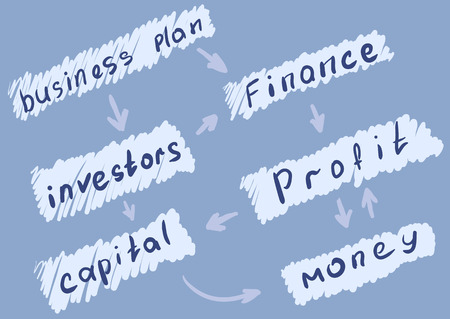1. Introduction: The Rent vs. Buy Dilemma
Deciding whether to rent or buy a home is one of the biggest financial choices many Americans face. While homeownership has long been considered part of the “American Dream,” renting offers flexibility and lower upfront costs. So, how do you determine which option is right for you?
Factors That Influence the Rent vs. Buy Decision
There are several financial and lifestyle factors that play a role in whether renting or buying makes more sense. Here’s a breakdown of key considerations:
(1) Financial Factors
- Upfront Costs: Buying a home requires a down payment, closing costs, and other fees, while renting usually only requires a security deposit and first month’s rent.
- Monthly Payments: Mortgage payments can sometimes be comparable to rent, but homeowners also have property taxes, insurance, and maintenance expenses.
- Long-Term Investment: Owning a home builds equity over time, while renting does not provide asset growth.
- Credit Impact: A mortgage can help build credit if managed well, whereas rent payments may not always contribute to your credit score.
(2) Lifestyle Considerations
- Flexibility vs. Stability: Renting allows for easier relocation, while owning provides long-term stability.
- Maintenance Responsibilities: Homeowners must handle repairs and upkeep, whereas renters typically rely on landlords for maintenance.
- Customization and Personalization: Homeowners can renovate and decorate freely, while renters often face restrictions.
A Quick Comparison: Renting vs. Buying
| Renting | Buying | |
|---|---|---|
| Initial Costs | Lower (Security deposit, first month’s rent) | Higher (Down payment, closing costs) |
| Monthly Expenses | Fixed rent payments | P&I + property taxes + insurance + maintenance |
| Financial Growth | No equity built | Pays towards ownership & builds equity |
| Lifestyle Flexibility | Easier to move | Difficult to relocate quickly |
| Maintenance Responsibility | The landlord handles most repairs | The homeowner is responsible for all repairs |
| Tied to Market Conditions? | No direct impact from housing market changes | Affected by real estate market fluctuations |
The Bottom Line
Your decision to rent or buy depends on your financial situation, lifestyle preferences, and long-term goals. Understanding these factors will help you make an informed choice that aligns with your needs.
The Financial Realities of Homeownership
Buying a home is often seen as a smart long-term investment, but it comes with significant financial responsibilities beyond just the monthly mortgage payment. Let’s break down the key costs associated with homeownership.
Mortgage Costs
Your mortgage payment is typically the biggest expense when you own a home. It includes several components:
| Cost Component | Description |
|---|---|
| Principal | The portion of your payment that goes toward paying down the loan balance. |
| Interest | The cost of borrowing money from your lender, based on your loan’s interest rate. |
| Private Mortgage Insurance (PMI) | If you put down less than 20%, you may have to pay PMI, which protects the lender in case of default. |
Property Taxes
Property taxes vary by location and are assessed annually based on your homes value. These taxes help fund local services like schools, roads, and emergency services. Be sure to check tax rates in your area before purchasing a home.
Home Maintenance Costs
A home requires regular upkeep to maintain its value. Some common maintenance expenses include:
- Roof repairs or replacement
- HVAC system servicing
- Lawn care and landscaping
- Pest control
- Plumbing and electrical repairs
Unexpected Expenses
No matter how well you plan, unexpected costs can arise. Here are some examples:
(1) Emergency Repairs
An appliance may suddenly break, or you might need urgent plumbing or electrical work.
(2) Homeowners Insurance Deductibles
If damage occurs due to fire, storms, or other events, you’ll need to pay a deductible before insurance covers repairs.
(3) HOA Fees
If you live in a neighborhood with a homeowners association (HOA), there may be mandatory fees for community upkeep.
![]()
3. Renting: The Benefits of Flexibility and Lower Risk
Renting a home offers significant financial advantages, especially for those who want to maintain flexibility and avoid long-term debt. While owning a home can be a great investment, it also comes with risks and responsibilities that may not suit everyones financial situation.
How Renting Supports Financial Freedom
One of the biggest benefits of renting is the ability to keep your finances flexible. Instead of committing to a 30-year mortgage, renters have the freedom to adjust their living expenses based on income changes, job opportunities, or personal goals.
(1) No Large Down Payment Required
Buying a home requires a significant upfront investment, often tens of thousands of dollars in down payments and closing costs. Renters, on the other hand, typically only need a security deposit and first months rent.
(2) No Unexpected Maintenance Costs
Homeowners are responsible for repairs, which can add up quickly. Renters, however, usually have landlords who handle maintenance and repairs at no additional cost.
(3) Easier Budgeting with Fixed Monthly Costs
When you rent, your housing costs are more predictable. Property taxes, homeowners insurance, and unexpected repair bills can fluctuate for homeowners, making budgeting more challenging.
Avoiding Long-Term Debt
A mortgage is one of the largest debts most people will ever take on. While buying a home can build equity over time, it also ties you to a long-term financial commitment that may not always align with your future plans.
(1) No Mortgage Debt
Avoiding mortgage debt means avoiding interest payments that could add up to hundreds of thousands of dollars over the life of a loan.
(2) No Risk of Foreclosure
If financial difficulties arise, homeowners risk foreclosure if they cant make their mortgage payments. Renters can simply choose a more affordable place to live without severe financial consequences.
The Advantage of Mobility in an Unpredictable Housing Market
The housing market fluctuates due to economic conditions, interest rates, and regional demand. Renting allows individuals to move freely without worrying about losing money on property value changes.
| Factor | Renting | Buying |
|---|---|---|
| Upfront Costs | Low (security deposit + first months rent) | High (down payment + closing costs) |
| Maintenance Responsibility | Landlord handles repairs | Homeowner must pay for all repairs |
| Mobility | Easier to relocate | Difficult to sell quickly if needed |
| Long-Term Debt | No mortgage debt | Pays off mortgage over decades |
| Market Risk | No risk of home value dropping | Potential loss if market declines |
(1) Easy Relocation for Career or Lifestyle Changes
If you need to move for work or personal reasons, renting allows you to do so without being tied down by real estate transactions.
(2) Avoiding Market Downturns
If the housing market declines, homeowners could lose equity in their homes. Renters don’t have to worry about fluctuating property values affecting their financial stability.
(1) Renting as a Smart Short-Term Strategy
If youre unsure about where youll be in five years or dont want the responsibility of homeownership yet, renting provides flexibility without long-term commitment.
(2) When Buying Might Be Better Long-Term
If youre financially stable and plan on staying in one place for many years, buying could be advantageous—but only if youre prepared for the risks involved.
4. Can You Own a Home Without Falling into Debt?
Buying a home is a significant financial commitment, but with the right strategies, you can minimize debt and maintain financial stability. Here are some key approaches to help you own a home without getting overwhelmed by debt.
Saving for a Large Down Payment
A larger down payment reduces your mortgage amount and lowers monthly payments. It also helps you avoid private mortgage insurance (PMI), which can add extra costs.
(1) Set a Savings Goal
Determine how much you need for a 20% down payment based on your target home price and start saving consistently.
(2) Cut Unnecessary Expenses
Reduce discretionary spending and allocate more funds toward your home savings account.
(3) Consider High-Yield Savings Accounts
Place your savings in a high-yield account to earn interest while working toward your goal.
Choosing a Reasonable Mortgage
Selecting the right mortgage is crucial to staying debt-free. Here’s how to choose wisely:
| Factor | Recommendation |
|---|---|
| Loan Type | Opt for a fixed-rate mortgage for predictable payments. |
| Loan Term | A 15-year loan saves on interest compared to a 30-year loan. |
| Monthly Payment | Keep it below 25% of your take-home income. |
| Additional Costs | Account for property taxes, insurance, and maintenance. |
Managing Household Finances Wisely
Once you purchase a home, managing finances properly helps prevent debt accumulation.
(1) Create a Detailed Budget
Track your income and expenses to ensure you can comfortably afford your mortgage and other living costs.
(2) Build an Emergency Fund
Aim for at least 3-6 months’ worth of expenses in savings to cover unexpected repairs or job loss.
(3) Avoid Lifestyle Inflation
Just because you own a home doesn’t mean you should overspend on upgrades or unnecessary purchases.
(1) Prioritize Necessary Repairs Over Aesthetic Changes
Focus on essential maintenance before making cosmetic improvements.
(2) Shop Smart for Home Furnishings
Look for deals, buy second-hand, or wait for seasonal sales to furnish your home affordably.
(3) Limit New Debt After Buying a Home
Avoid taking on new loans or credit card debt shortly after purchasing your home.
By following these strategies, you can achieve homeownership while maintaining financial stability and avoiding excessive debt.
5. Making the Right Choice for Your Financial Future
Deciding between renting and buying a home is one of the biggest financial choices youll make. Your decision should align with your personal financial goals, the current housing market conditions, and your long-term financial stability. Lets break it down to help you make the best choice.
Understanding Your Financial Goals
Before making a decision, ask yourself:
- Do you want flexibility to move frequently, or are you looking for stability?
- Are you financially prepared for homeownership costs beyond the mortgage?
- Is building equity a priority for you?
Evaluating Market Conditions
The real estate market fluctuates, and timing can significantly impact your investment. Consider these factors:
| Factor | Buying | Renting |
|---|---|---|
| Housing Prices | If prices are rising, buying may be a good investment. | If prices are high, renting might be more affordable short-term. |
| Interest Rates | A lower interest rate makes buying more attractive. | No impact on rent prices but affects mortgage affordability. |
| Rental Market | If rents are increasing rapidly, buying may be cheaper over time. | If rents are stable or decreasing, renting could be a better option. |
The Long-Term Financial Impact
(1) Building Equity vs. Paying Rent
If you buy a home, part of your monthly payment builds equity rather than going to a landlord. However, if property values decline, you could lose money when selling.
(2) Maintenance & Hidden Costs
Homeownership comes with additional costs like repairs, insurance, and property taxes. Renters dont have to worry about these expenses but also miss out on potential property appreciation.
(3) Debt-Free Homeownership
If staying debt-free is your goal, consider saving aggressively before buying or opting for a smaller home with an affordable mortgage. Renting allows you to avoid mortgage debt altogether but doesn’t contribute to asset-building.
Your Best Move
Your choice depends on your lifestyle, financial situation, and future plans. If flexibility is key, renting might be better. If long-term investment is your priority and youre financially prepared, buying could be a smart move.


